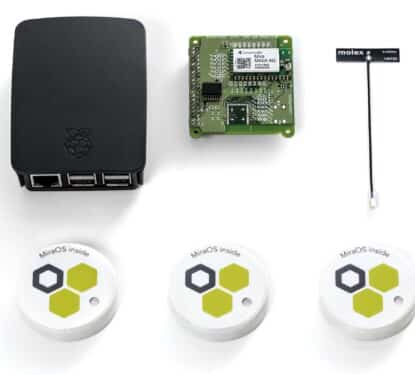Nokia was once king of the mobile phone, a household name and a constant presence in our lives. Back when cell phones were just cell phones, and when smart was just another word for clever… Ok, admittedly that wasn’t very long ago and Nokia is still fresh in our memories but despite its failure in the smartphone market, Nokia is making a comeback of sorts – the Finnish technology firm wants to build Smart Cities.
“As a global leader in the technologies that connect people and things, Nokia clearly has a great interest in helping bring clarity to the market, and to identify important focus areas. We look forward to helping cities develop the shared, secure and scalable networks and platforms needed to enable the human possibilities of smart, safe and sustainable cities," said Osvaldo Di Campli, head of Global Enterprise & Public Sector at Nokia.
In January this year, Nokia updated its Internet of Things (IoT) platform with pre-integrated applications targeting smart cities. Boldly calling it the ‘Intelligent Management Platform for All Connected Things (IMPACT)’, the platform gives IoT users a secure, standards-based foundation on which to build and scale new services, Nokia says. The IMPACT City IoT platform joins its city-wide access broadband, city shared network and city cloud services in the companies drive into the smart city market.
This comes off the back of a report co-published by Nokia and Machina Research in November last year. ‘The Smart City Playbook’ is a strategy report that documents best practices for smart cities using investigations into the strategies and progress of 22 cities around the world. The study uncovered significant diversity in the smart city strategies of different cities, but identified three distinct ‘routes’ that cities are taking to make themselves smarter.
"The process of making a city smart is extremely complex, and there are so many different strategies being put forward in the market that choosing the right path for your city can be an enormous challenge,” said Campli during the launch of the report.
Then in February, Nokia published its smart city framework in a report entitled A new world of cities and the future of Australia. The report outlines a more centralized approach to smart city development, bucking the growing trend towards a citizen-led, bottom-up implementation. Nokia goes so far as to suggest a state and territory government-level approach, working in conjunction with an overarching federal government program leaving cities to concentrate on their specific needs.
As centralized smart city systems began to emerge many cities quickly discovered the issues with a more authoritarian top-down attitude. This centralized approach did little to engage communities and access the power of start-ups in identifying problems and creating innovative solutions.

Rather than government led, as Nokia proposes, many nations have given the responsibility of understanding and designing smart cities to the municipal authorities that run them on a day-to-day basis. Others opinions go much further by putting more power in the hands of the community leaders, local businesses and the city’s actual inhabitants. It is not the first time Nokia bucked a smart trend, and last time it didn’t go so well.
That is not to say Nokia does not value the community, nor does it disregard the importance of citizen engagement in smart city development, and certain systems must be centralized. However, the inevitable result of shifting the balance of power out of the cities to state and national government is a diminished sense of ownership and engagement by a city’s inhabitants. It seems counter-productive to organically creating unique cites that represent and serve their citizens.
"No one said becoming a smart city would be easy. There are lots of choices to be made. The technology and the business models are evolving rapidly, so there are many degrees of uncertainty. Standards are emerging but are by no means finalised. So there is no 'royal road' to smartness,” says Jeremy Green, Principal Analyst at Machina Research who authored the Smart City Playbook for Nokia.
Green sees no royal road but he does see, “a right way to travel - with your eyes open, with realistic expectations, and with a willingness to learn from others. That includes other cities that might face the same problems as you, even if in a different context. It includes the suppliers, who may have learned from their experiences elsewhere, including in other verticals. It includes start-ups, who can be great innovators; and most of all, it includes the city's own inhabitants, who are your real partners for the journey."
[contact-form-7 id="3204" title="memoori-newsletter"]



